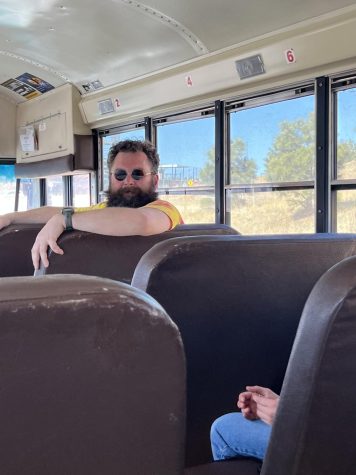Colorado Vaccination Rates Continue to Drop Due to Speculation Over Safety
More childhood vaccinations have made parents wary of their safety, and Rocky students speak about their views on vaccination
"Project 365 #268: 250914 Cold Shot" by comedy_nose is licensed under CC PDM 1.0
Parents, distrusting of the growing number of required childhood vaccinations, have started opting their children out of essential vaccinations more.
As infants transition into young adulthood, there are required vaccinations. These vaccines can prevent deadly illnesses that once claimed the lives of millions of people, but some parents are skeptical about how safe vaccines are and refuse to vaccinate their children.
“I haven’t lived enough to see how it would affect me,” sophomore Nora Baker said. Baker’s mother has decided to not vaccinate her, and she isn’t concerned about getting vaccinated. Baker has never had a serious illness other than the flu. “I haven’t seen anyone who hasn’t been vaccinated going through something worse [than me].”
The thought process behind vaccination is the concept of herd immunity. Herd immunity protects those unable to get vaccinations by making sure the majority is immune, so highly infectious diseases cannot spread. Even though many infectious diseases are eradicated in the United States, they are found around the world, so reintroduction is possible.
The MMR vaccination protects against measles, mumps, and rubella and is typically given twice in children’s lives: once at one year, and once at 4-6 years. In 2017, Colorado was the third lowest state in terms of MMR vaccination rates, with 87.2% of children having been vaccinated. The optimum rate of vaccination for herd immunity to work is 95% percent, and the national average is 94.3% for MMR. The average continues to drop.
So, why do parents refuse vaccination? One of the biggest pushes for anti-vax ideology was a now debunked study that linked autism and the MMR vaccine. Parents decided that rather than risk having an autistic child from vaccines, they would decline the MMR vaccination.
Schools require vaccinations to attend, but parents can request exemptions that allow their children to attend without the usually required dosage of vaccines that protect against things like chicken pox, polio, and meningitis. In Colorado, seven vaccinations are required for entering childcare, six for grade school, and one for college.
“Well, I believe it’s needed,” Julian Kaan said. Kaan’s brother had a severe reaction to vaccines as a newborn, so Kaan was put on a delayed vaccination schedule. A very small percent of the population can have severe reactions to vaccinations if they have an allergy. Kaan and his brother are examples of people who fit under medical exemptions, and who are normally protected by herd immunity. “As my immune system matured, my family believed I could handle them without having issues.”
Because Colorado is in the lowest percentile for vaccination, a bill was pushed by Rep. Kyle Mullica to add stricter exemption regulations. Colorado would still allow religious and personal exemption–the only catch is that exemptions would need to be filed in person at a state office.
Statistics have shown that the more effort it takes to file exemptions, the more likely it is people will get vaccinated. The bill didn’t pass after push back from anti-vax groups, but it will be up again in 2020.

Payton is a senior at Rocky Mountain High School. They've been on the newspaper staff for 3 years. After high school, Payton wants to work as an investigative...











